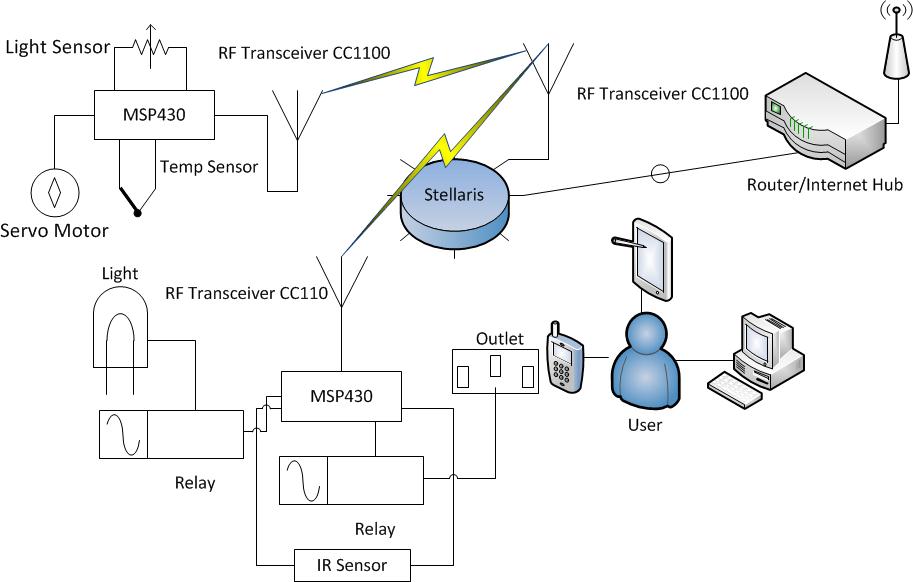Initial Project Description:
Our project will use a motion sensor set up in each doorway, so if someone goes through a doorway, the doorway sensor
is tripped, and the data signal is sent to the main microcontroller. Once this occurs, the main microcontroller
waits for sensor input activation from both of the rooms that share that doorway. Once one of the rooms sensors
are activated, that room’s lights are turned on, and the other’s is turned off. If at any time the sensors of a
room are activated, that room’s lights will turn on, and stay on until one of that rooms’ exit door sensors is
tripped, and no activity is registered from that room. The other method of reduction of energy consumption is
turning fans on instead of the more costly alternative of air conditioning. In each room, there is a temperature
sensor, and if the temperature goes above the desired threshold, the fan will turn on. Once the temperature drops
below the threshold, the fan will turn off. The only design consideration was where to be able to control the
temperature threshold. The main control is going to be set in a graphical user interface residing on the main
microcontroller that would be accessible via the internet. There will be a temperature display in each room where
the user could view and adjust the temperature setting for the room specified. The design architecture that was
settled on included connecting the microcontroller to a relay which, which is then connected to the outlet. This
proved to be the safest, most effective, and most energy efficient architecture to control the state of the outlets.
|

